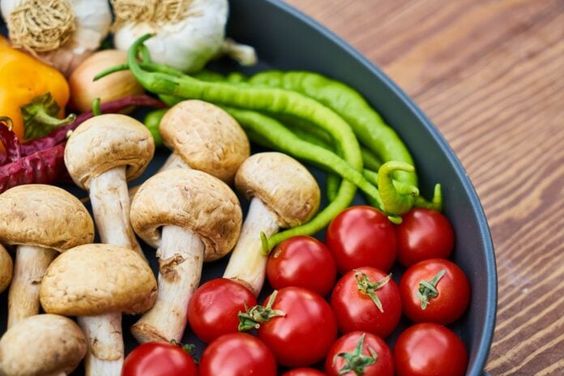PLANT BASED PROTEINS
In recent years, the popularity of plant-based diets has surged, and with good reason. People are increasingly embracing plant-based proteins not only for their health benefits but also for their positive impact on the environment. Plant-based proteins offer an array of essential nutrients and can be a delicious and satisfying addition to any meal. This comprehensive guide explores all aspects of plant-based proteins, from their sources and nutritional value to cooking tips and expert insights. Whether you are a long-time vegan or simply looking to incorporate more plant-based options into your diet, this article will provide you with valuable information and inspiration.
Plant Based Proteins: The Basics
Plant-based proteins are derived from a wide range of plant sources and offer a myriad of health benefits. Let’s explore the fundamentals of plant-based proteins.
What Are Plant-Based Proteins?
Plant-based proteins are protein-rich foods derived from plant sources rather than animal products. They serve as an excellent alternative to animal-based proteins and can meet the body’s protein requirements while offering various other essential nutrients.
Nutritional Value of Plant-Based Proteins
Plant-based proteins are packed with essential nutrients necessary for maintaining a healthy body. They are typically rich in protein, fiber, vitamins, minerals, and antioxidants, which collectively promote overall well-being.
Benefits of Plant-Based Proteins
Including plant-based proteins in your diet offers numerous advantages. These include improved heart health, better weight management, reduced risk of chronic diseases, and a positive impact on the environment due to lower greenhouse gas emissions.
Cooking with Plant-Based Proteins
Cooking with plant-based proteins can be both fun and rewarding. With a diverse range of options, you can experiment with different flavors and textures to create delicious and satisfying meals.
Plant Based Proteins: Sources and Types
Plant-based proteins come from various plant sources. Understanding these sources and their types will help you plan a balanced and nutritious diet.
Legumes: Nature’s Protein Powerhouse
Legumes, such as lentils, chickpeas, black beans, and kidney beans, are excellent sources of plant-based proteins. They are also rich in fiber and low in fat, making them ideal for heart health and digestion.
Nuts and Seeds: Tiny Packages of Nutrients
Nuts and seeds like almonds, chia seeds, and pumpkin seeds offer a substantial protein boost along with healthy fats and essential minerals. They are great additions to smoothies, salads, and snacks.
Grains: More Than Just Carbs
Whole grains, including quinoa, brown rice, and oats, are not only rich in complex carbohydrates but also contain a notable amount of protein. Incorporating these grains into your meals adds variety and nutrition.
Soy: The Complete Protein
Soy-based products like tofu, tempeh, and edamame provide all essential amino acids, making them complete protein sources for vegetarians and vegans.
Vegetables: Surprising Protein Sources
Certain vegetables like broccoli, spinach, and Brussels sprouts contain more protein than you might expect. They also offer a range of vitamins and minerals to support your health.
Nutritional Benefits of Plant Based Proteins
Plant-based proteins offer an array of essential nutrients that contribute to a healthy and balanced diet. Let’s explore their nutritional benefits in detail.
Protein: Building Blocks of Life
Protein is essential for building and repairing tissues, supporting immune function, and producing enzymes and hormones. Plant-based proteins provide ample protein without the saturated fats found in many animal-based sources.
Fiber: Aiding Digestion
Fiber aids in digestion, promotes a healthy gut, and helps maintain a steady blood sugar level. Plant-based proteins, especially legumes and whole grains, are excellent sources of dietary fiber.
Vitamins and Minerals: Vital for Health
Plant-based proteins offer a variety of vitamins and minerals such as vitamin C, vitamin E, iron, magnesium, and potassium.
Antioxidants: Fighting Free Radicals
Many plant-based proteins are rich in antioxidants, which help neutralize harmful free radicals and reduce the risk of chronic diseases and inflammation.
Plant Based Proteins: Cooking Tips and Delicious Recipes
Cooking with plant-based proteins can be a delightful experience, with countless tasty recipes to explore.
Tips for Cooking with Plant-Based Proteins
- Marinate tofu or tempeh before cooking to enhance flavor and texture.
- Blend legumes like chickpeas into a smooth hummus or add them to salads for added protein.
- Roast nuts and seeds with your favorite spices for a satisfying and nutritious snack.
Protein-Packed Breakfast Ideas
- Quinoa Breakfast Bowl: Top cooked quinoa with fresh berries, nuts, and a drizzle of honey for a protein-packed morning treat.
- Vegan Protein Pancakes: Combine mashed bananas, almond milk, and plant-based protein powder for a delicious and fluffy pancake batter.
Satisfying Lunch and Dinner Options
- Lentil Shepherd’s Pie: Create a comforting shepherd’s pie using lentils, mixed vegetables, and a mashed potato topping.
- Chickpea and Avocado Salad: Toss chickpeas, diced avocado, cherry tomatoes, and arugula with a lemon-tahini dressing for a refreshing salad.
Desserts Rich in Plant-Based Proteins
- Chocolate Avocado Mousse: Blend ripe avocados with cocoa powder, maple syrup, and a hint of vanilla for a luscious and nutritious dessert.
Expert Insights on Plant Based Proteins
To provide you with a well-rounded understanding of plant-based proteins, we sought insights from experts in the field.
Interview with Nutritionist Jane Smith
Question: What are the primary benefits of adopting a plant-based protein diet? Answer: A plant-based protein diet offers numerous health benefits, such as reduced risk of heart disease, improved digestion, and better weight management. It also supports environmental sustainability by reducing carbon footprint and water usage.
Insights from Chef Michael Johnson
Question: How can people make plant-based proteins the star of their meals? Answer: It’s essential to get creative with flavors and textures when working with plant-based proteins. Experiment with different spices, herbs, and cooking techniques to bring out the best in these ingredients.
Do follow us for more https://uniqverses.com/








